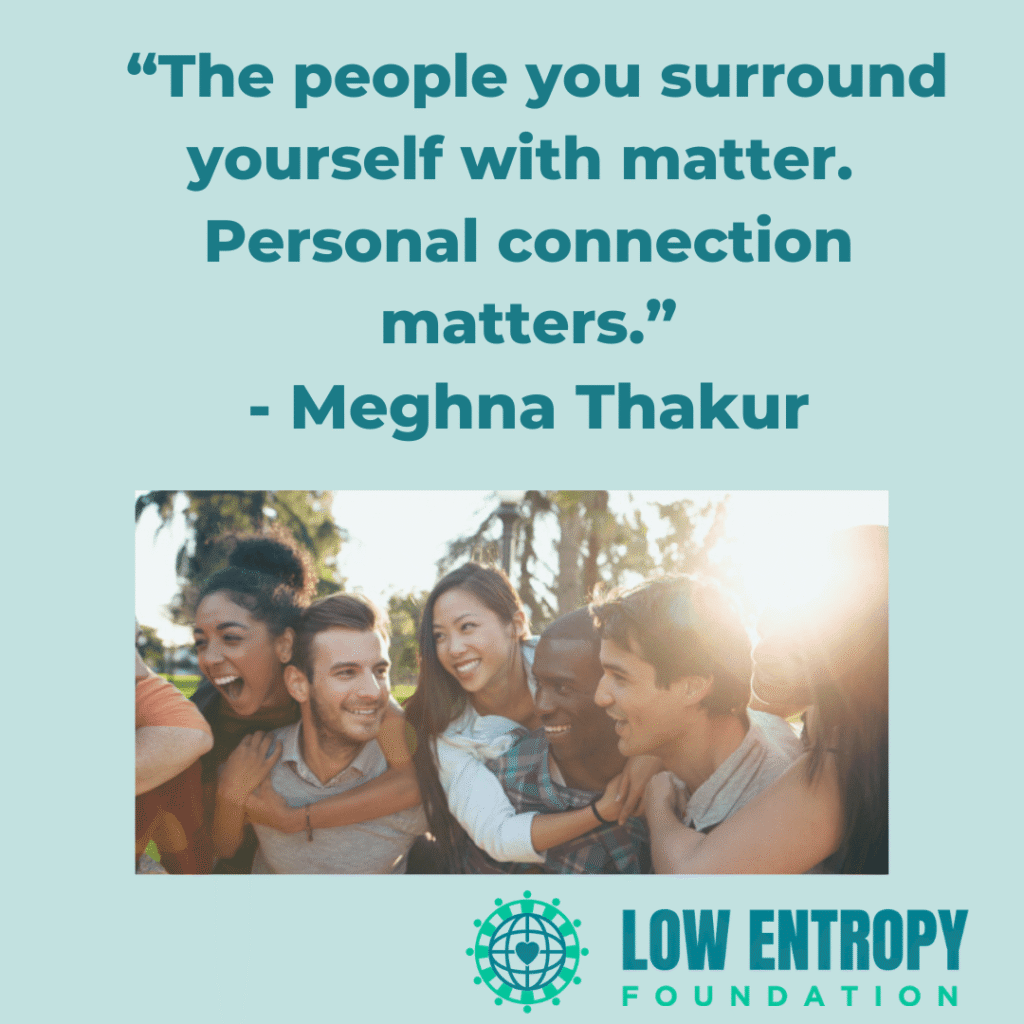Sibling Dynamics
MacKenzie Chalmers (she/her/hers), Low Entropy Volunteer Writer The traditional idea of family has changed through our transforming society. Blended families are now common, creating various kinds of siblings: Full Siblings: Siblings who share the same biological parents. Half-Siblings: Siblings who only share one biological parent between them. Step-Siblings: Siblings who are […]
I Can.

Isolated from her family and mired in feelings of inadequacy, Low Entropy Volunteer Writer Meghna Thakur hit a low point before gradually emerging from it. Reflecting on that time, Meghna is now putting pieces together to create essential personal supports. It always starts with the same thought, “I don’t think I can,” in one […]
